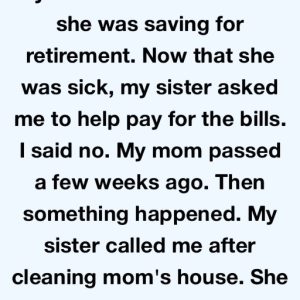**Rare Medication Reaction in 55-Year-Old Woman Highlights Importance of Monitoring New COPD Treatments**
A 55-year-old woman recently experienced an unusual and severe reaction shortly after beginning a new inhaled medication for chronic obstructive pulmonary disease (COPD). Her case is a powerful reminder that when it comes to chronic illnesses—especially those treated with long-term medications—any new or unexpected symptom should never be ignored.
### **COPD and Inhaled Medications: Why Monitoring Matters**
COPD is a progressive lung disease that makes it difficult to breathe, commonly caused by long-term exposure to irritants such as cigarette smoke. Treatment often includes inhaled medications designed to open the airways, reduce inflammation, and improve daily breathing. While these inhalers are generally safe and effective, they can occasionally cause side effects—some predictable, others rare.
In this woman’s case, her symptoms were not typical. Soon after starting the new inhalation therapy, she developed:
* **Sudden facial swelling**
* **Rapid heartbeat**
* **Dizziness**
* **A tight feeling in her throat**
At first, she attributed these symptoms to stress, but within hours they worsened, prompting her to seek emergency medical care. Doctors later confirmed she had experienced a **rare allergic reaction** to the inhaled medication.
### **Understanding Rare Reactions to COPD Medications**
Most COPD inhalers contain bronchodilators or corticosteroids that are well-tolerated. However, in rare circumstances, patients may experience:
* **Allergic reactions** to medication ingredients
* **Anaphylaxis**, a severe and potentially life-threatening immune response
* **Paradoxical bronchospasm**, where instead of relaxing the airways, the inhaler causes them to constrict
* **Systemic side effects** if the medication is absorbed more quickly than expected
These reactions can be unpredictable, especially when starting a medication for the first time.
### **What This Case Teaches Us**
This patient’s experience underscores several important lessons for anyone beginning a new inhaled therapy:
#### **1. Pay Attention to New Symptoms**
Even if they seem minor—itching, lightheadedness, chest tightness—take note. Symptoms that appear soon after medication changes are especially worth documenting.
#### **2. Don’t Self-Diagnose Unusual Reactions**
It’s tempting to dismiss symptoms as stress, fatigue, or “normal aging,” but early medical evaluation can prevent a crisis.
#### **3. Always Tell Your Doctor About Allergies**
Even if you’ve never reacted to medications before, it’s helpful for healthcare providers to know if you’re prone to allergic responses.
#### **4. Keep Emergency Information on Hand**
People with chronic conditions should always have easy access to their:
* Medication list
* Emergency contacts
* Prescribing doctor’s information
* Any known allergies
### **Moving Forward: What Happened Next**
The woman recovered fully after receiving prompt treatment, including antihistamines and corticosteroids. Her care team revised her COPD treatment plan, ensuring that any future medications are introduced slowly while monitoring closely for any reactions. She now carries an emergency alert card and is encouraged to report any new symptoms immediately.
### **Final Takeaway**
While rare, unexpected reactions to new COPD medications can happen—and when they do, early medical attention can be lifesaving. For anyone managing a chronic condition, vigilance, communication, and prompt action are essential parts of staying safe and maintaining quality of life.
If you’ve recently started a new medication and notice anything unusual, don’t wait—**call your healthcare provider right away**.





